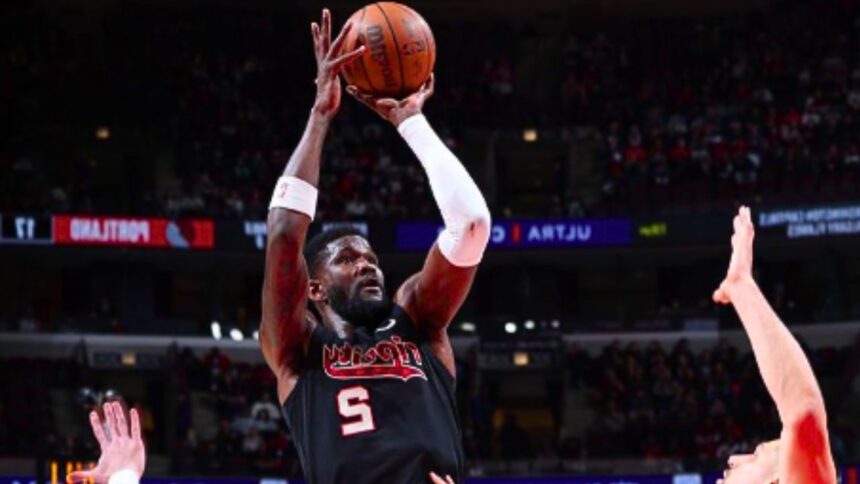Portland Trailblazers center DeAndre Ayton’s recent admission regarding the impact of his sleeping arrangements on his on-court performance has sparked a debate within the NBA community. Ayton attributed his early-season struggles to the discomfort of sleeping on an air mattress, suggesting that it hindered his ability to perform at his best. While his explanation may have seemed valid to some, it has drawn criticism from veteran NBA player Eddie A Johnson, who dismissed it as just another excuse in a long line of athlete complaints.
Ayton’s revelation about his sleeping situation, shared via a source on Twitter, shed light on a factor that many fans might not have considered when analyzing his performance. According to Ayton, the lack of a proper bed impacted his ability to rest adequately and left him feeling less than optimal on the court. His words reflected the human aspect of professional athletes, highlighting the challenges they face beyond the game itself.
However, Johnson’s response to Ayton’s explanation struck a different chord. As a former NBA player with years of experience under his belt, Johnson emphasized the high salaries that athletes like Ayton command. He argued that with such hefty paychecks, excuses about minor inconveniences like sleeping arrangements become less justifiable. Johnson’s blunt retort underscored a prevailing sentiment among fans and pundits alike: at the end of the day, it’s all about performance on the court.
The exchange between Ayton and Johnson touches upon a broader issue within the NBA and professional sports in general: the accountability of athletes for their performance. With lucrative contracts and endorsement deals, players are held to high standards both on and off the court. Ayton’s $133 million contract extension with the Suns in 2022 exemplifies the financial stakes involved in professional basketball, raising questions about whether excuses like his hold water in the eyes of fans and critics.

Of course, Ayton is not the first athlete to cite external factors for a dip in performance. Throughout NBA history, players have offered various explanations for subpar showings, ranging from legitimate concerns like injuries to more trivial matters like forgetting essential items. The validity of these excuses often hinges on the severity and feasibility of the problem at hand.
In Ayton’s case, the debate over the significance of his air mattress woes continues to simmer. While some may empathize with his predicament, others view it as a weak justification for underperforming, particularly given the financial rewards that come with being a professional athlete. The lack of a response from the Blazers’ management leaves the matter open to interpretation, but it has sparked broader discussions about professionalism, accountability, and the pressures faced by young athletes in today’s NBA.
Ultimately, the Ayton-Johnson exchange serves as a reminder of the complexities inherent in professional sports. While athletes are undoubtedly subject to intense scrutiny and pressure, they are also handsomely compensated for their talents. As fans and observers, it’s essential to strike a balance between empathy for the challenges athletes face and holding them accountable for their performance on the court. Only then can we truly appreciate the dedication, skill, and resilience required to succeed at the highest level of competition.




